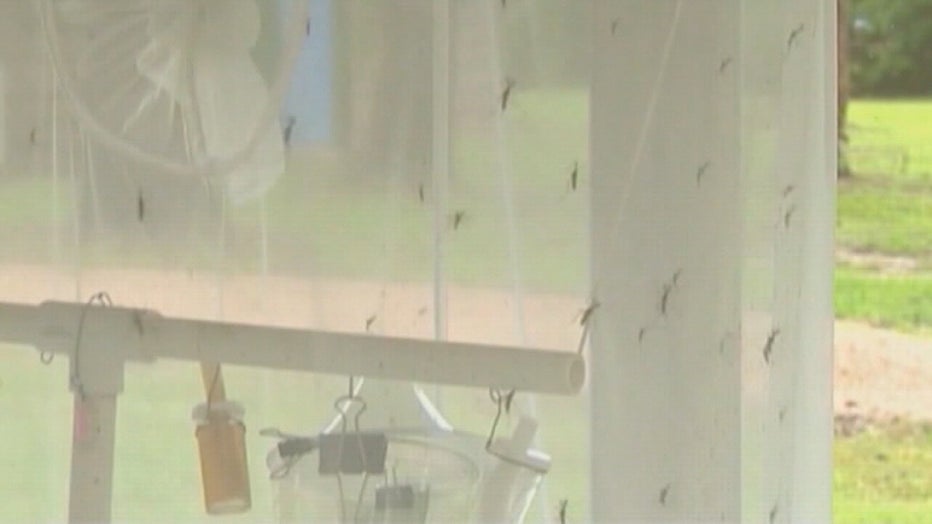West Nile virus threat grows in Tarrant County, health officials warn

West Nile virus threat grows in Tarrant County, health officials warn
Tarrant County Public Health says the threat from West Nile, especially in northeast Tarrant County, is going up.
FORT WORTH, Texas - Tarrant County Public Health says the threat from West Nile, especially in northeast Tarrant County, is going up.
So far, only one person had died. But recent tests of mosquito traps in the area show a 60 percent positivity rate.
Tarrant county leaders are trying to avoid the very real possibility of dealing with two public health threats at once.
Tarrant County Public Health Director Dr. Vinny Taneja gave perhaps his sternest West Nile disease warning for residents since 2016.
“People need to go today to any big box store of your choice and get those hose-based sprayers and spray their backyards. That’s the first thing,” Dr. Taneja said. “Normally, that’s the last thing I tell people to do because I want prevention right? Get rid of standing water. Wear DEET. That can come later. I need you to take action today.”

Dr. Taneja points out the mosquito-borne threat is affecting northeast Tarrant county the worst. Positive test pool results there are at 60 percent, which is up 10 percent from last week.
“Public areas are getting treated. But at your own property, you’re the ones who’re going to have to help us out,” he said. “Otherwise, we’re looking at problems coming down here in the next couple of weeks.”
One Tarrant County resident has died from West Nile death this year, and another is currently ill.
Judge Glen Whitley and the county commissioners discussed the need for urgency.
This familiar health concern is happening as schools are reopening amid the COVID-19 pandemic. The county recently held a virtual meeting including more than 100 people from various school districts.
“Anytime there is a positive case, public health is going to get involved,” Whitley said. “They’re going to track that case from the beginning until it’s resolved. They’re also going to do the contact tracing.”
Among the many specifics, there is the need to limit the movement of students when they do return to campuses.
“As a routine practice while COVID-19 is an active issue, we need to have that restricted,” Dr. Taneja said. “Because what if that child turns out to be a positive case. Now you’ve got all these places within the school you have to do contact tracing on. But if the movement is restricted, you can limit that.”
The county’s efforts to further slow the spread of COVID-19 continue, and now a social media campaign is also underway to share the message about West Nile prevention.

